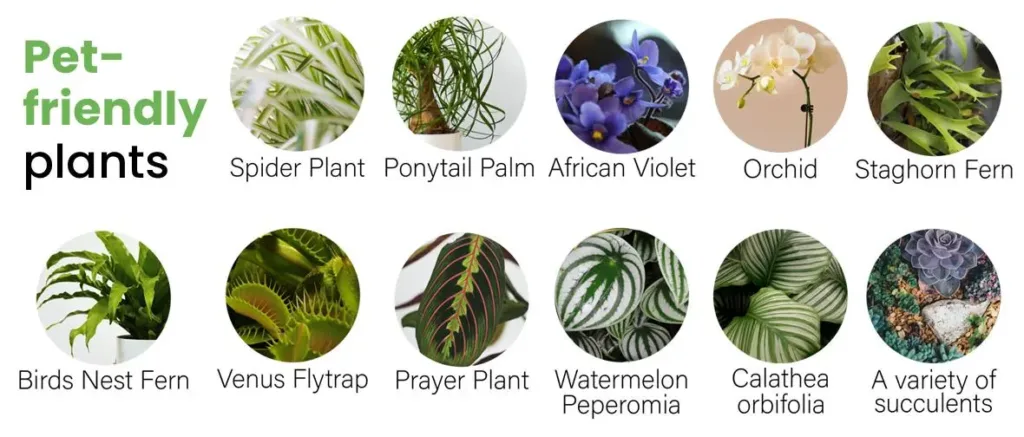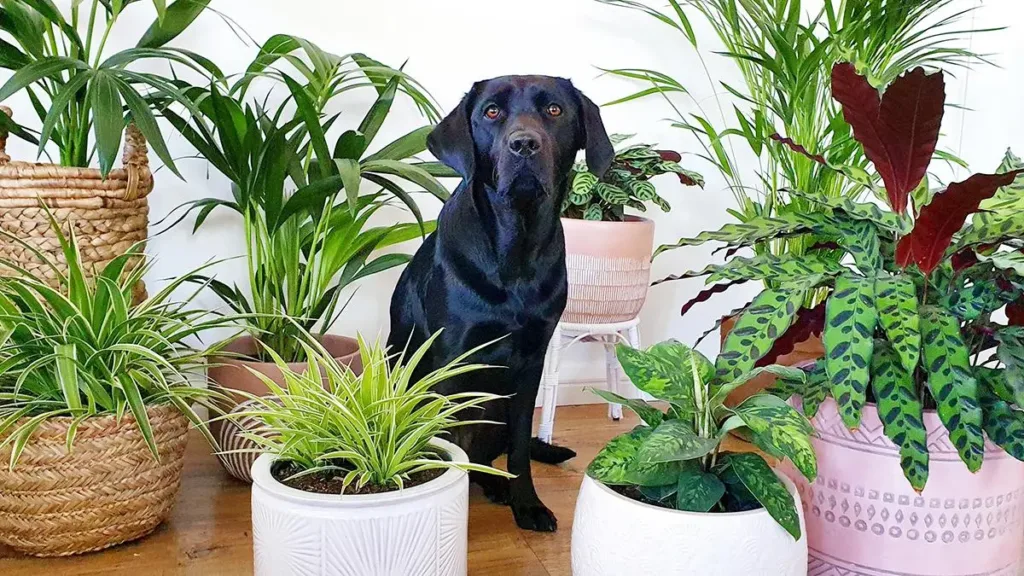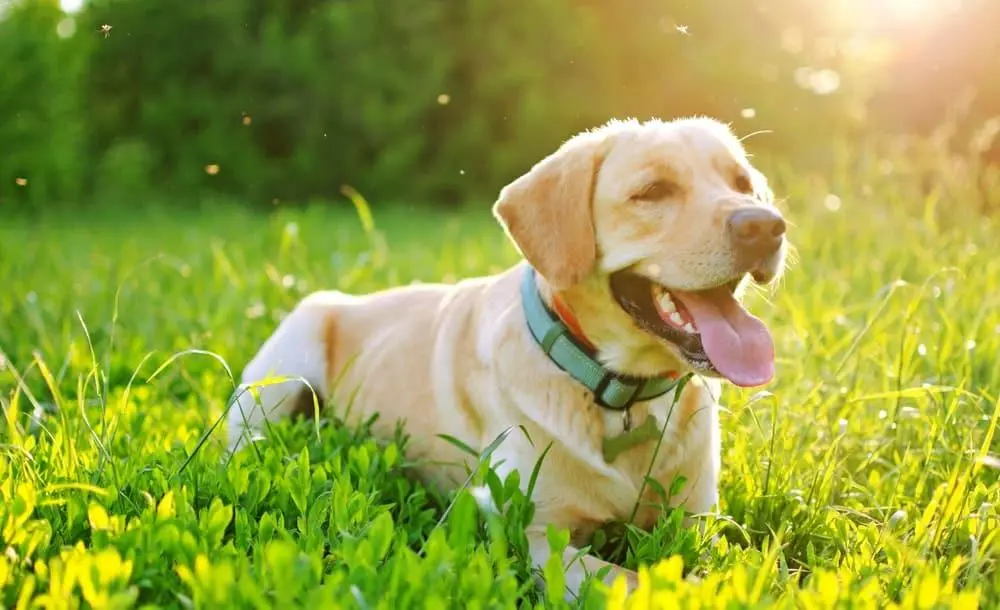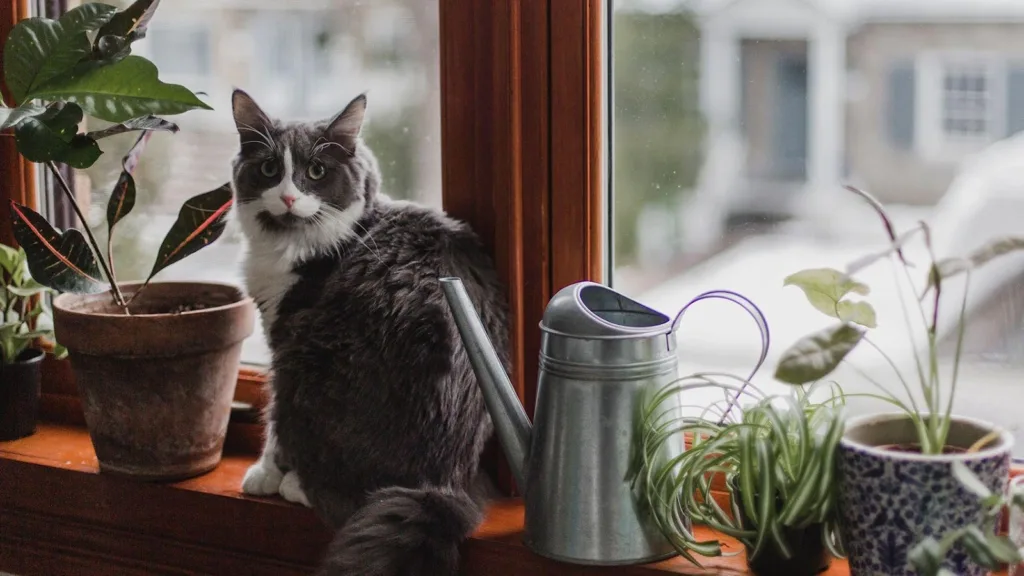Top 10 best pet-friendly plants that are safe
Hey there, fellow pet lovers! Today we are going to cover the topic that’s close to every dog owner’s heart keeping our furry friends happy and healthy. Have you ever noticed how your furry buddy lights up when surrounded by some greenery? It’s not just a coincidence plants make a big difference in your pet’s world! Today, we’re chatting about why having plants in your home is super cool for your pets. If you’ve ever wondered about pet friendly plants. Then Join us on this green adventure as we explore the top 10 best pet friendly plants, the importance of having them around, and how to create a safe haven for your four-legged companions.
Table of Contents
You know how they say dogs are a man’s best friend? Well, these plants are about to become your dog’s new BFFs too! From the vibrant Spider Plant to the evergreen Boston fern, we’ve rounded up the top 10 pet friendly plants.
What is the Importance of Pet Friendly Plants?

Ever wondered why your dog gives you that pleading look when you’re arranging flowers? Turns out, our pets are not just cute they’re smart too! Learn the value of having pet friendly plants in your house; these green friends have benefits beyond aesthetics, such bettering air quality and lowering stress.
Having pet-friendly plants offers several important benefits for both you and your furry companions:
Safety for your pets:
- Reduces risk of poisoning: Pets, especially curious cats and playful dogs, may nibble on plants. Choosing non-toxic or pet-friendly varieties prevents potential poisoning and protects their health.
- Minimizes digestive issues: Even non-toxic plants can cause stomach upset if ingested in large quantities. Pet-friendly options minimize the risk of vomiting, diarrhea, and other digestive problems.
- Discourages destructive behavior: When they encounter safe plants, pets are less likely to chew or dig at them, protecting your greenery and reducing damage to your home.
Enhances your living environment:
- Air purification: Many pet friendly plants act as natural air filters, removing pollutants and improving indoor air quality, beneficial for both you and your pets.
- Stress reduction: Plants have a calming effect and can reduce stress levels in both humans and animals. Adding greenery to your living space can create a more peaceful and relaxing environment.
- Increased aesthetics: Plants add beauty and life to any home, making it more inviting and enjoyable for everyone, including your pets.
Additional benefits:
- Provides enrichment for pets: Your feline friends may find certain pet friendly plants, such as catnip or cat grass, to be stimulating and enriching.
- Promotes responsible pet ownership: Choosing safe plants demonstrates responsible pet ownership and ensures the well-being of your furry companions.
- Wide variety of options: There are a vast array of pet friendly plants available, catering to different preferences and living conditions, so you can find the perfect fit for your home and style.
Recall that delicate pets may get irritation from even non-toxic plants. When your pets are among plants, it’s advisable to keep an eye on them and get veterinary advice if you have any concerns.
Pet-Friendly House Indoor Plants for Cats & Dogs

Our indoor space wouldn’t be complete without a touch of greenery. But what plants are safe for our feline friends as well as our canine companions? Join us as we explore the perfect indoor plants that will turn your house into a pet paradise.
Here are some fantastic ways to add greenery to your house without endangering your animal companions:
Simple-care alternatives:
• Spider Plant: A traditional option, well-known for its ability to filter the air and its ease of multiplication.
• The ponytail palm is a unique, low-maintenance plant that can withstand a variety of lighting situations.
- Air Plants: Don’t need soil, so perfect for hanging and require minimal care.
- Money Tree: Symbolic of prosperity, thrives in moderate light and infrequent watering.
- Chinese Money Plant: Easy to grow, compact size, and adds a pop of green to any space.
For cat lovers:
- Ribbon Grass: Safe alternative to catnip, provides enrichment and digestive benefits.
- Spider Plant: Can withstand curious nibbles and offers air purification.
- Boston Fern: Beautiful, air-purifying, but keep out of reach as ingestion can irritate their stomachs.
- Calathea Orbifolia: Stunning foliage, non-toxic, but requires consistent humidity.
- Haworthia Succulents: Interesting textures and shapes, safe for dogs but might mildly upset cats.
For dog lovers:
- Parlor Palm: Elegant and air-purifying, tolerates low light and infrequent watering.
- Rubber Plant: Durable and relatively pest-resistant, thrives in bright indirect light.
- African Violets: Beautiful blooms, safe for dogs but potentially cause vomiting in sensitive cats.
- Orchids: Exotic flowers, non-toxic for most dogs, but some varieties might cause mild stomach upset in cats.
- Ponytail Palm: Unique, low-maintenance, and tolerates a wide range of light conditions.
Other considerations:
- Light and watering needs: Choose plants that suit your living conditions and your ability to care for them.
- Pet personality: Consider your pet’s individual curiosity and chewing habits.
- Placement: Keep plants out of reach of climbing pets or those prone to digging.
- Always research thoroughly: Double-check even pet friendly plants to ensure they’re safe for your specific species and individual sensitivities.
What Pet-Friendly Outdoor Plants Repel Mosquitoes?

Summer nights are meant for outdoor adventures with your furry pals. But pesky mosquitoes can ruin the fun. Fear not! Discover a list of pet-friendly outdoor plants that not only keep mosquitoes at bay but also provide a safe and pleasant environment for your pets to roam.
In addition to keeping mosquitoes away, a variety of pet-friendly outdoor plants will help you and your canine friends enjoy your outside space more. These plants utilize various aromatic properties to repel the insects, creating a natural defense system in your garden.
For a refreshing citrus scent, consider citronella geranium, lemongrass, or lemon balm. These options boast delightful fragrances that humans enjoy while being unpleasant to mosquitoes. Catnip, peppermint, and spearmint offer minty aromas that not only repel mosquitoes but also provide culinary or entertainment value for your pets.
Lavender, rosemary, and basil round out the list with their unique scents. Lavender’s calming aroma deters mosquitoes while adding elegance to your garden. Rosemary’s woody fragrance combines mosquito repellency with culinary versatility. Basil, a key ingredient in pesto, offers strong mosquito-repelling properties and delicious leaves for your kitchen.
Remember, while these plants are helpful, they may not offer complete protection. Combine them with other methods like eliminating standing water and using pet-safe repellents for a truly mosquito-free haven for you and your furry friends.
| Category | Plant | Description |
|---|---|---|
| Citronella-Scented | Citronella Geranium | Known for its citronella fragrance, great for repelling insects. |
| Lemongrass | A zesty delight with a lemony scent, adds freshness to your space. | |
| Lemon Balm | Releases a soothing lemon fragrance, perfect for a calming atmosphere. | |
| Minty Marvels | Catnip | A favorite of feline friends, gives off a pleasant minty aroma. |
| Peppermint | Known for its refreshing peppermint scent, ideal for uplifting moods. | |
| Spearmint | Boasts a sweet and mild mint fragrance, a delightful addition to your home. | |
| Other Fragrant Foliage | Lavender | Famous for its calming lavender aroma, promotes relaxation. |
| Rosemary | An aromatic herb with a woody fragrance, perfect for culinary use. | |
| Basil | Offers a sweet and spicy aroma, a versatile herb for cooking and fragrance. |
What Plants Are Not Pet-Friendly?

Caution! Not all plants are created equal when it comes to your pets’ safety. Learn about the plants that may pose a threat to your furry friends and should be kept out of their reach.
Highly Toxic:
- Lilies (True lilies, Daylilies, Tiger lilies, Stargazer lilies): All parts of lilies are incredibly toxic to cats, causing kidney failure even in small amounts.
- Sago Palm: This common houseplant contains cycasin, a toxin that can induce vomiting, diarrhea, and convulsions in cats and dogs alike, as well as liver failure in canines.
- Azaleas and Rhododendrons: These flowering shrubs contain grayanotoxins, which can cause vomiting, tremors, and even death in pets if ingested.
- Dieffenbachia (Dumb Cane): Insoluble calcium oxalate crystals found in this common houseplant can irritate the lips, tongue, and throat when swallowed, leading to swelling and difficulties swallowing.
- Oleander: All parts of this plant are highly toxic and can cause cardiac arrest in both cats and dogs.
Moderately Toxic:
- Tulips and Daffodils: 1. If consumed by pets, the toxins in these spring bulbs can result in vomiting, diarrhea, and stomach pain.
- Cycads: Like Sago Palms, cycads can induce liver failure in pets due to their cycasin content.
- Caladium: If chewed, the insoluble calcium oxalate crystals in this ornamental foliage plant can irritate the tongue and throat.
- Castor Bean: The seeds of this plant contain ricin, a deadly toxin that can cause organ failure in pets.
- Kalanchoe: This succulent plant contains cardiac glycosides, which can cause abnormal heart rhythms and vomiting in pets.
Mildly Toxic:
- Aloe Vera: While the gel inside the leaves is beneficial for humans, the outer layer and sap contain aloin, which can cause vomiting, diarrhea, and lethargy in pets.
- English Ivy: This common vine contains saponins, which can irritate the mouth, stomach, and skin if ingested or touched.
- Peace Lily: This popular houseplant contains insoluble calcium oxalate crystals, causing mouth and throat irritation if chewed.
- Poinsettia: The milky sap of this holiday plant can cause stomach upset and skin irritation in pets.
- Schefflera: This popular houseplant contains saponins, which can irritate the mouth, stomach, and skin if ingested or touched.
Remember: This is not an exhaustive list, and even plants not listed here could be harmful depending on the individual pet and the amount ingested. If you have pets, always do your homework on plants before bringing them inside, and if you have any concerns, speak with a veterinarian.
Dog-Safe Plants You Can Add to Your Garden

Got a garden and a pup with a green paw? Perfect! Discover which dog-safe plants can happily coexist in your outdoor haven, creating a dog-friendly paradise right in your backyard.
It’s wise for pet owners to design a garden that is both attractive and secure for their animal companion. Check out these charming and dog-safe plants that can enhance your outside area while also guaranteeing the health and happiness of your pet:
Flowers:
- Begonias: Bursting with vibrant colors and various sizes, begonias bring an elegant flair to your garden. They love partial shade and won’t demand too much watering.
- Daylilies: Low-maintenance champs with trumpet-shaped flowers in hues of yellow, orange, and pink. They tolerate different soil conditions and are a magnet for butterflies and hummingbirds.
- Marigolds: Cheery blooms in shades of yellow, orange, and red, marigolds not only look lovely but also carry a scent that keeps mosquitos at bay.
- Snapdragons: Tall and spiky, these flowers paint your garden in various hues throughout summer. Easy to grow from seed, they attract important pollinators like bees and butterflies.
- Zinnias: Annuals that spread cheer with a wide range of colors and sizes. Simple to grow from seed, zinnias are a favorite among butterflies and hummingbirds.
Herbs:
- Dill: This aromatic herb isn’t just safe for dogs but adds a delicious flavor to your salads, dips, and other culinary delights.
- Lavender: Beyond its delightful fragrance, lavender has calming properties. Use it in sachets, potpourri, or even dry it for culinary use. Bonus: it’s deer-resistant!
- Rosemary: Versatile and medicinal, rosemary can be used fresh or dried in various dishes. It also doubles as a tea or essential oil for extra benefits.
- Thyme: Perfect for ground cover or rock gardens, thyme is drought-tolerant and brings both visual appeal and culinary versatility to your garden.
Plants That Are Safe for Pets and Low Maintenance
If you’re a pet owner looking to add some greenery to your space without committing to a high-maintenance routine, consider incorporating plants that are safe for your furry friends and require minimal care. Due to its reputation for cleansing the air, the spider plant is an excellent low-maintenance pet choice.
It requires little watering and grows best in shaded sunshine. The Areca Palm is another great addition that will give your home a hint of the tropics. It is safe for pets to play in, prefers bright, indirect light, and can be allowed to dry up in between waterings.
The feathery fronds of the Boston fern, which adds a sense of elegance to any room, are a delightful accent that is safe and easy to maintain. It needs indirect light and a cool, humid location. The soil should be kept regularly moist. With little work on your side, these plants not only improve your house but also give your dogs a safe haven.
Where to buy pet friendly plants?
When it comes to buying pet friendly plants, Onpetscare stands out as your go-to destination for a wide variety of green companions. As a dedicated platform for pet enthusiasts, Onpetscare not only offers an extensive range of quality pet supplies but also provides a curated selection of pet friendly plants, ensuring the safety and well-being of your furry friends.
Whether you’re looking for vibrant flowers to add color to your space or low-maintenance herbs to enhance your garden, Onpetscare has you covered. Onpetscare is more than simply a pet store it’s a sanctuary for pet lovers and their cherished companions, offering over 40 Product categories and a dedication to providing Fur-ever Quality in all pet needs.
Bid farewell to the headache of having to look elsewhere for pet friendly plants. Onpetscare brings convenience and quality together, making it the ultimate destination for all your pet and plant needs. Your journey to a pet-friendly and green haven begins at Onpetscare because every pet and plant deserves the best.
FAQ’S
1. Q: What makes a plant pet-friendly?
Pet friendly plants are non-toxic and safe for your furry companions. These plants are carefully selected to ensure that even if your pets nibble or interact with them, they pose no harm.
2. Q: Are all pet-friendly plants low maintenance?
While many pet friendly plants are known for their low-maintenance nature, it’s essential to note that each plant has its care requirements. Some may thrive with minimal attention, while others might need specific conditions to flourish. It’s always a good idea to choose plants that align with your gardening skills and the level of care you can provide.
3. Q: Can I find a variety of pet-friendly plants for different light conditions?
Yes, absolutely! Pet friendly plants come in various species and can adapt to different light conditions. Whether your space receives ample sunlight or is mostly shaded, there are suitable options available. When selecting plants, consider the lighting conditions of your home and choose accordingly to ensure their well-being.
4. Q: How can I create a safe indoor environment for my pets with plants?
To create a safe indoor environment with plants, choose varieties that are known to be non-toxic to pets. Place them in areas that are not easily accessible to your pets, especially if they have a habit of exploring greenery.
5. Q: What should I do if my pet ingests a plant, even if it’s considered pet-friendly?
If you suspect your pet has ingested a plant, even if it’s considered pet-friendly, it’s crucial to contact your veterinarian immediately. While pet friendly plants are generally safe, individual pets may react differently. Be observant of any unusual behavior, and seek professional advice promptly to ensure your pet’s well-being.



